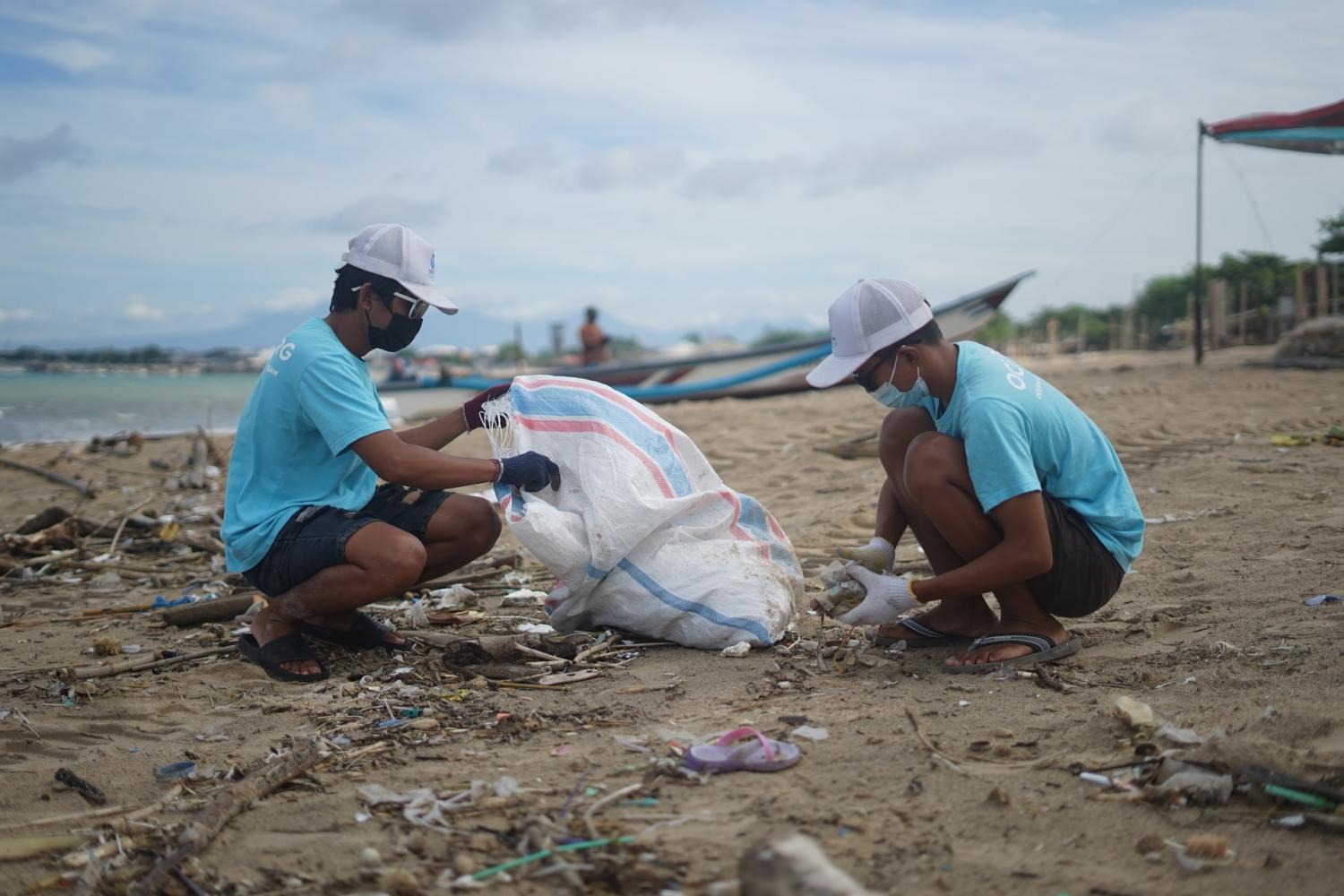
Today, World Oceans Day, is a reminder of how the high seas give us life and livelihoods, as this year’s United Nations commemoration emphasizes for 2021.
The reminders of the value oceans bring to humanity often come with brilliant photos that showcase sea life, recreation such as kayaking, and local people fishing across the continents — all of which succeed in demonstrating how the oceans are central to how billions of us live, work and play.
Often not shown in such visuals are the effects that the mismanagement of the oceans has on people worldwide. That’s especially true when it comes to showing the risks faced by people of color and low-income people, who are more likely to live near a facility that makes or incinerates one of the oceans’ greatest nemeses: plastic.
“The problem is that plastic pollution isn’t just an issue of waste accumulation — plastics are also manufactured and often incinerated in communities where poor people and people of color are rarely consulted or alerted to the risks,” Yvette Arellano and Mariana Del Valle Prieto Cervantes of the conservation group GreenLatinos wrote earlier this month for the online news outlet Prism. “Our communities are living this pollution every day and understand the connections between air, water, land, ocean, and human health in very personal and concrete ways.”
Arellano and Cervantes pointed out how California, which has made some headway into taking on plastic pollution, still has two incinerators located in majority-Latino communities.
Editor's note: Be sure to subscribe to our Brands Taking Stands newsletter, which comes out every Wednesday.
At a higher level, the underlying cause of the ocean plastics crisis is threefold: companies’ reticence to take on plastic waste, let alone be accountable; consumers’ affinity for the convenience plastic packaging offers; and finally, the clout plastic manufacturers enjoy in many a hall of government. This trifecta has made any regulatory action a tough sell at the local, state and federal levels. Even in supposedly forward-thinking California, two bills that would have resulted in the strongest statewide restrictions to address plastic pollution in the U.S. failed to pass the legislature last year.
As widely reported, one member of the state Assembly called her colleagues out, urging them to take a stand on this environmental justice crisis. “We know this is a real problem. And it’s not a white, coastal problem. Don’t come to me with that,” said Assembly Member Lorena Gonzalez of San Diego, who sponsored one of the bills that narrowly failed to pass in 2020. “Because I have a Brown community that is dirty as crap with your plastics. It’s dirty because there’s nowhere to put them.”
Gonzalez’s pleas didn’t move a majority of legislators. And of course, the problem hasn’t gone away — if anything, the ongoing pandemic has made it worse.
Given that at least one report suggests 20 companies alone account for half of all the single-use plastic worldwide, it’s about time for those companies to step up, along with the investment firms and banks that are helping to keep the global plastics sector afloat.
A start would be concrete plans to move these plastic manufacturing plants away from the communities who are suffering from the effects as pollution takes a toll on their neighborhoods. But that action is only the bare minimum, or the floor: The ceiling is an agenda to involve the consumer goods companies and other industries that benefit from plastic. By and large, most of them so far have offered up vague pledges — often containing promises to do better by 2025 or 2030 — about how they will tackle the problems that plastic is wreaking across the globe.
Image credit: OCG Saving the Ocean/Unsplash

Leon Kaye has written for 3p since 2010 and become executive editor in 2018. His previous work includes writing for the Guardian as well as other online and print publications. In addition, he's worked in sales executive roles within technology and financial research companies, as well as for a public relations firm, for which he consulted with one of the globe’s leading sustainability initiatives. Currently living in Central California, he’s traveled to 70-plus countries and has lived and worked in South Korea, the United Arab Emirates and Uruguay.
Leon’s an alum of Fresno State, the University of Maryland, Baltimore County and the University of Southern California's Marshall Business School. He enjoys traveling abroad as well as exploring California’s Central Coast and the Sierra Nevadas.














